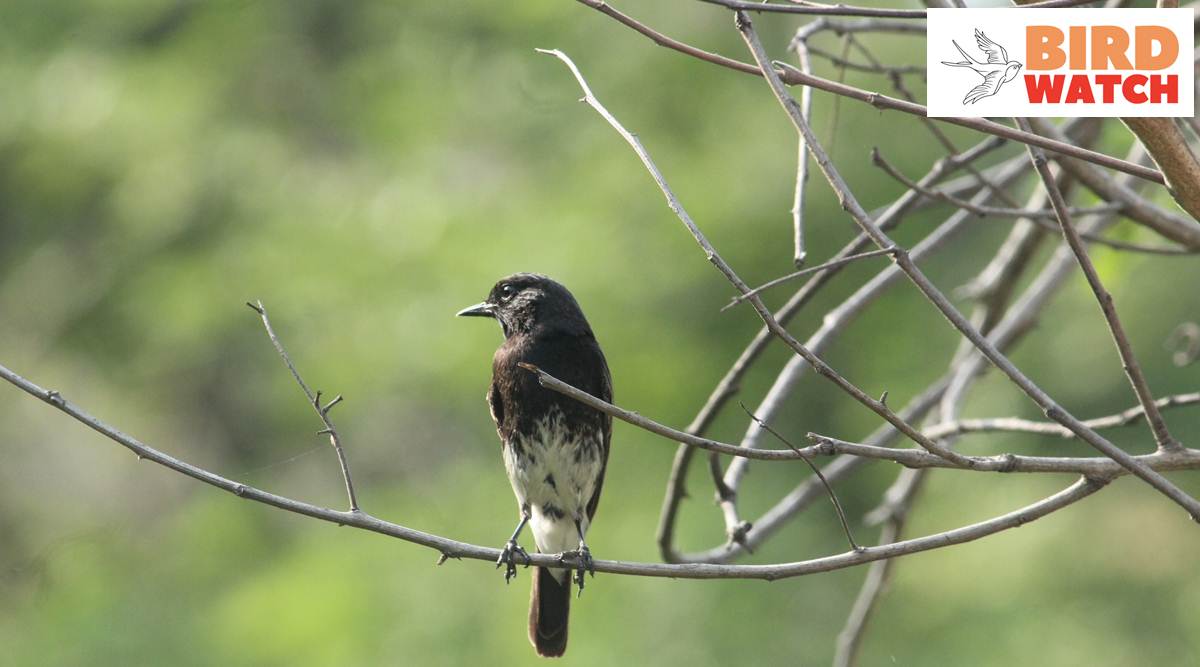 The pied bush chat mostly ventures out in pairs and they can be spotted at the Botanical Garden, Sarangpur, Leisure Valley, Sector 10 and even in public parks.
The pied bush chat mostly ventures out in pairs and they can be spotted at the Botanical Garden, Sarangpur, Leisure Valley, Sector 10 and even in public parks.The pied bush chat (scientific name Saxicola Caprata) – called kala pidda in Hindi and kali galldi in Punjabi – is a small passerine bird that can be found in dry scrub, bushes and farmlands.
The male is black except for a white rump, wing patch and lower belly. The female is drab brown and slightly streaked. Juveniles have a scaly appearance on the underside but dark above like the females.
Going by its coloured plumage, the pied bush chat is quite similar to the Indian robin. Its call also matches with the call of the Indian robin, but the pied bush chat does not randomly pick its tail like the Indian robin. Its body is also leaner in comparison to the Indian robin.
The members of this species feed on insects and they hunt from lower perches – a reason why there is no need to always look upwards through binoculars or a powerful camera lens to catch a glimpse of this bird. One can easily find this bird sitting on the lower perches of trees, in bushes in urban areas as well as anywhere in the countryside in Inter-State Chandigarh Region (ISCR). The pied bush chat mostly ventures out in pairs and they can be spotted at the Botanical Garden, Sarangpur, Leisure Valley, Sector 10 and even in public parks.
Best of Express Premium
The breeding season of this bird is from the month of February to August, with the peak season between March and June. The nest is usually built within a hole in a wall or a similar site lined with grass and hair.
- The Indian Express website has been rated GREEN for its credibility and trustworthiness by Newsguard, a global service that rates news sources for their journalistic standards.

